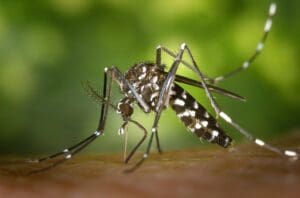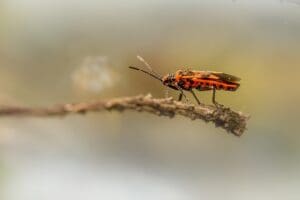In the last couple of weeks, we have talked about mosquitos and ticks, and how you can protect your family and pets from ticks. But today we are going to talk about another type of animal that is prone to being bit by ticks – the horse. So, we giving you tips on how to protect your horse from ticks.

Use a Topical Preventative to Protect Your Horse From Ticks
This is one of the easiest ways to protect your horse from ticks. Some of the fly sprays offer tick prevention as well. There are also some topical treatments that are useful for deterring the ticks from making a meal of your horse. Products such as Equi-Spot can help with repelling flies and ticks. Make sure that if you’re using one of these products that you’re reading and following the instructions from the manufacturer and that you test it on a smaller area to be sure that your horse doesn’t have a reaction.
Clip Their Legs for Tick Prevention
This is another way to protect your horse from ticks. Clipping a horse’s legs often will make it easier to see the ticks and stop them from climbing up and biting. It’s a good idea to pay special attention to that long hair that’s behind the fetlocks. Clip the legs several times during the summer. This will let you take your hands and feel any ticks that are there by running over the horse’s legs.
Make Sure Pastures are Mowed to Protect Your Horse From Ticks
When your pasture is mowed, it helps to get rid of the taller grass that ticks love. If the tall grass is gone, they won’t be able to go onto the horse’s legs as easily. It’s also a good idea to clear the brush from your fence lines as well since this is another favorite hiding spot of ticks.
Keep to the Trails to Avoid Ticks
When you’re riding on a trail, it’s best to stay on the trail rather than venturing off to tall grass. Thoroughly spray them using a spray that takes care of repelling ticks as well before you go into a wooded area.
Check Horses Each Day to Protect Them from Ticks
Make sure that you are checking your horse every day for any ticks, particularly if he’s been in the pasture or you’ve been trail riding. A tick will often climb up its legs and bite him near his chest or the places where his legs and body connect.
I hope you found this useful. If you have a horse and love horseback riding, these are some tips that you should remember to help keep your horse happy and healthy. And if you are interested in having a company help you with your tick problem in a natural and safe way, contact us. We offer organic pest control, especially for mosquitos and ticks. Contact us for more information.




